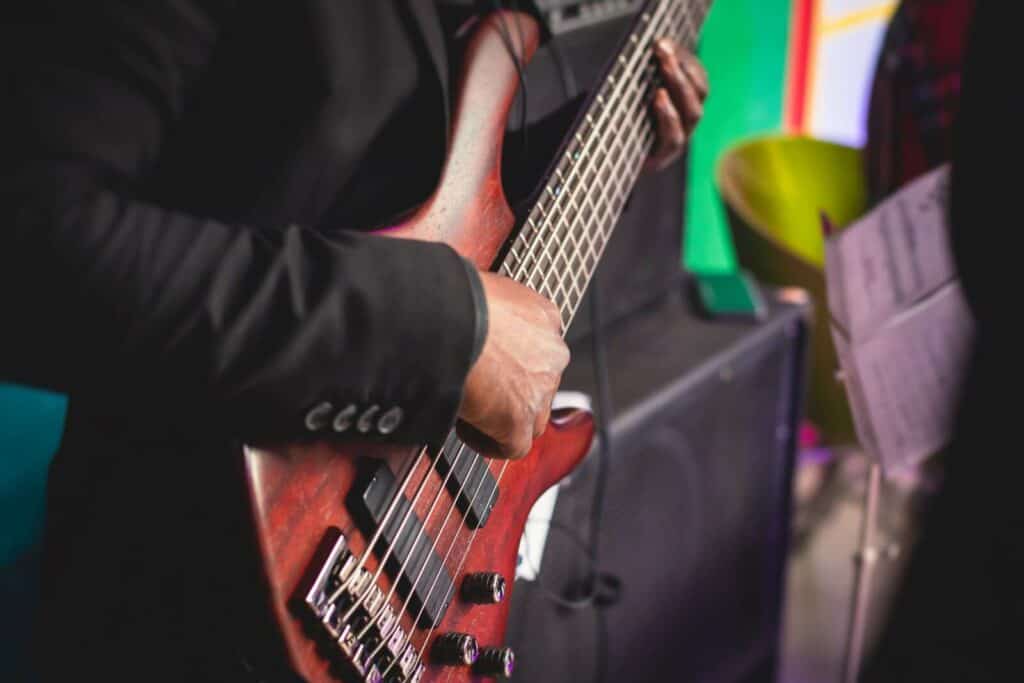Have you ever experienced ringing in your ears after a concert or a long jam session with your band? While it may seem like a temporary annoyance, it could be an early indicator of permanent damage to your hearing.
As a musician, you are at a heightened risk of noise-induced hearing loss, and the consequences can be severe. As a hearing practice, we want to empower musicians to recognize the signs of hearing loss and take quick action to protect their hearing.
Why Musicians Are More at Risk of Hearing Loss
Musicians are more at risk of hearing loss because they are often exposed to high levels of sound during their performances and rehearsals. Prolonged exposure to loud music can cause permanent damage to the hair cells in the inner ear, which are responsible for transmitting sound signals to the brain.
The risk of hearing loss increases with the intensity of the sound and the duration of the exposure. For example, rock musicians who play at high volumes for several hours are at a greater risk of hearing loss than classical musicians who perform in a more controlled environment.
In addition, musicians may be exposed to other sources of loud sound, such as amplifiers, speakers, and crowd noise. They may also wear headphones or earphones to monitor their own performance, which can increase the risk of hearing damage if the volume is too high.
Signs of Noise-Induced Hearing Loss
There are several signs that you may be experiencing noise-induced hearing loss, and it’s essential to recognize them early to prevent permanent damage to your hearing.
Onset of Tinnitus
Tinnitus is a ringing, buzzing, or humming in the ears that is often a symptom of noise-induced hearing loss. Musicians are 57 percent more likely to develop tinnitus than other people. If you experience tinnitus after a performance, it’s time to take action. Our hearing professionals can recommend hearing protection or in-ear monitors to reduce the risk of further damage.
Loud Noises Cause Discomfort
If you find that loud noises cause discomfort or pain, it’s time to get your hearing checked. Noise-induced hearing loss from prolonged exposure to loud music can eventually lead to hyperacusis, characterized by abnormal sensitivity to sounds that others may not find overly loud, such as the jangling of keys or a car engine.
Developing a “Blind Side” in Your Hearing
Musicians may begin to lose hearing in only one ear due to prolonged exposure to sound. In some cases, musicians can develop a “blind side” in their hearing due to other directional factors, such as being seated in a section where they receive direct sound from the horns in one ear. This can have lasting effects if left unchecked, so it’s essential to get your hearing checked regularly by a hearing professional.
Playing Off-Key
When you develop hearing loss, you may find yourself playing off-key. In-ear monitors can help, and hearing protection exists with special filters that protect your ears from excessive noise while allowing you to hear the full frequency range. Today’s most advanced hearing aids have been designed to improve clarity and sound quality, not just amplification. More musicians with hearing loss wear them in the studio and elsewhere, allowing them to continue pursuing their passion for music.
General Fatigue, Social Isolation, or Trouble Concentrating
Hearing loss causes fatigue, making it difficult to concentrate or follow conversations. In some cases, hearing loss can lead to social isolation, as people become embarrassed or frustrated by their inability to communicate effectively. By recognizing the signs of hearing loss and taking action early, you can prevent these negative consequences and continue enjoying your passion for music.
Taking Action
Regardless of outcome, it’s important for musicians to recognize the signs of noise-induced hearing loss and take quick action, whether that includes ear protection, hearing aids, or both. Our hearing professionals can provide personalized recommendations based on your needs and preferences. We understand the unique needs of musicians and can help you find a solution that allows you to continue pursuing your passion for music while protecting your hearing.
If you are a musician or someone who has experienced any of the signs of noise-induced hearing loss, we encourage you to visit our hearing practice. Our hearing professionals are trained to diagnose and treat hearing loss, and we offer a range of hearing solutions to fit your needs and budget. Don’t let hearing loss hold you back from enjoying your passion for music. Take action today to protect your hearing and continue pursuing your dreams.





